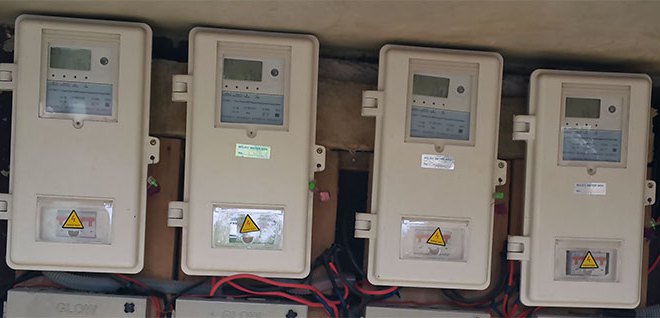
The Nigerian Electricity Regulatory Commission (NERC) says meter asset providers (MAP) will install meters at customers’ premises within 10 working days of payment.
A document made available to TheCable by Usman Arabi, head of public affairs department of the commission, stipulates that the payment will be at a competitive cost approved by the commission.
On March 12, 2018, Dafe Akpeneye, NERC’s commissioner, legal, licensing and compliance, unveiled the new regulation in Uyo, Akwa Ibom state.
The regulation, which is slated to commence on April 3, 2018, is projected to close the metering gap and eliminate estimated billing in the Nigerian Electricity Supply Industry (NESI) within three years of coming into effect.
TheCable had reported that a new monthly metering service charge has been introduced into the MAP regulations.
Arabi confirmed the story but said the service charge is to cover for investment in meter assets which will cease upon full payment of the cost of meter procurement.
NERC said payment of metering charge by a customer will stop when he or she has fully paid the cost of the meter but if a customer decides to pay for a meter in full upfront, such customer will not pay the metering service charge.
The regulation grants a 15-year license to MAP to help the 11 Distribution Companies (DisCos) speed up meter installation for their customers.
With the licensing of the 87 MAPs, prepaid meters are expected to flood the market.
However, the new regulations provide that customers only pay for metering service charge after the installation of a meter at their premises, hence DisCos will create new tariff plans to achieve that.
Effectively, the electricity bill of customers provided with a meter under the new regulatory framework shall comprise of two parts – energy charge and metering service charge.
With 4.7 million unmetered customers nationwide as of December 31, 2017, customers who procure meters under the new MAP regulation will also enjoy a ‘distinct tariff’ lower than other customers with legacy meters.
In addition, the new regulation says that defective meters will be repaired or replaced free of charge within two working days of being notified, only if the damage is not caused by the customer.
In a situation where there is delay in repair or replacement of a faulty meter within the billing period, an average of the last three months billing will be applied to determine customer’s energy consumption.
Under this new regulatory framework, if a customer relocates within the franchise area, the customer can apply for transfer of services including applicable credits for energy.
END

Uncle Jimi, this is a cheering news but the question is, how much is the meter please
There is a lacuna here. A prepaid meter develops a fault and couldn’t get repaired by the responsible party for three months. The responsible party then comes and asks the consumer to pay the average of last three months consumption. I see a fraud here. How do you determine the consumption for the last three months in a country where epileptic power supply is the order of the day; where a power transformer goes bad and throws the community in endless darkness and the responsible party neglects and fails to carry out repairs until consumers start begging for the transformer to be repaired or replaced. And when the response party finally responds to carry out repairs, they tax the consumers to pay for a new transformer and installation cost. The whole arrangement is skewed against the consumer. Etoi Mbiabong in Uyo, Akwa Ibom has been thrown into darkness Goethe past five to six months due to faulty power transformer, and all efforts to get Phed to fix it has been akin to talking to a deaf and dumb.